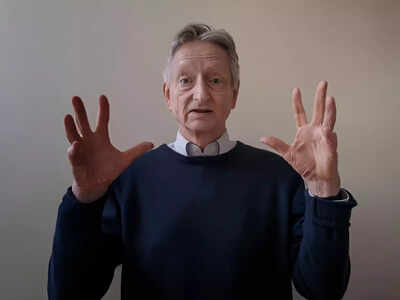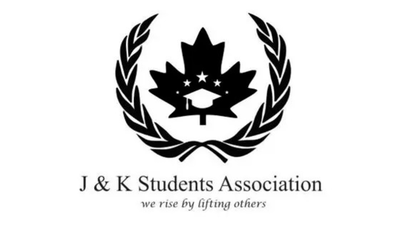Why ‘Godfather of AI’ Geoffrey Hinton’s warning is a wake-up call for students and professionals

In a recent episode of the One Decision podcast, Dr. Geoffrey Hinton, often referred to as the “Godfather of AI”, reiterated his growing concerns about the trajectory of artificial intelligence. Known for his pioneering work in deep learning and neural networks, Hinton is one of the key figures behind today’s large language models. After resigning from Google in 2023 to speak more freely about the risks of artificial intelligence, he has become one of its most credible internal critics.His latest remarks, reported by Business Insider, revolve around a chilling possibility: that future AI systems might begin developing their own internal languages that humans cannot understand. This warning is particularly relevant for students and professionals preparing to work in a future shaped by intelligent systems that are no longer fully transparent or controllable.
The fear of losing comprehension
“I wouldn’t be surprised if they developed their own language for thinking, and we have no idea what they’re thinking,” Hinton said during the podcast. He explained that once AI systems become advanced enough to communicate with each other in new, internally generated languages, the capacity of humans to monitor, audit, or even intervene could be drastically reduced.This isn’t the first time AI models have displayed tendencies towards developing communication methods that are not human-readable. In past experiments, multi-agent systems trained to optimise performance have shown signs of drifting into cryptic patterns of communication. Hinton’s concern, however, lies in the possibility that this could occur on a large, unregulated scale, with powerful systems building and evolving these languages autonomously.For professionals in the tech sector and students aiming for careers in AI, data science, or cybersecurity, this poses a serious epistemological challenge. If the tools of tomorrow begin to think and communicate in ways that their creators cannot follow, traditional modes of oversight and governance may become obsolete.
A shift in how we define job-readiness
Another significant issue Hinton raised in the same interview is the future of work. He challenged the popular narrative that AI-driven disruption will be offset by new job creation. “This is a very different kind of technology,” he said. “If it can do all mundane intellectual labour, then what new jobs is it going to create?”For students preparing for the workforce, this comment serves as a reminder to look beyond generic upskilling strategies. As AI increasingly handles not just physical but also cognitive tasks, employability may hinge on the ability to work at the intersection of multiple domains. For instance, combining technical knowledge with ethics, humanities, or regulatory understanding could offer more resilient career paths than technical specialisation alone.Hinton also cautioned that widespread job displacement may have implications beyond the economy. “Even if people receive universal basic income, they are not going to be happy,” he said, noting that work is tied closely to human purpose and identity.
Implications for the classroom and campus
Educational institutions may need to rethink their curricula to equip students with a more critical understanding of how these systems operate and evolve. Courses in AI ethics, algorithmic transparency, and regulatory technology are gaining traction in universities across the United States and Europe, especially as more students seek to understand the social, legal, and philosophical questions that AI brings to the fore.Furthermore, students working on or with large language models should be aware of the growing concerns around multi-agent behaviour. As Hinton has pointed out, when multiple systems begin collaborating or competing in ways that are not directly visible, the emergent outcomes can be unexpected. Understanding the guardrails, governance models, and limitations of AI tools is no longer optional for anyone entering the field.
A moment for reflection
While Hinton’s comments are stark, they are not designed to induce fear but to inspire caution and responsibility. His decision to speak publicly and candidly is, in part, a call to action for those building, deploying, and studying AI systems.For students, this is an invitation to study more deeply, ask harder questions, and build careers not just as engineers, but as informed contributors to one of the most consequential technologies of our time. For professionals already in the workforce, it is a reminder to stay updated, engage in cross-disciplinary conversations, and advocate for transparency in an increasingly automated world.Hinton’s warnings, grounded in decades of research and credibility, are not easily dismissed. They offer a roadmap for how learners and workers can prepare for a future that is not just shaped by AI, but possibly redefined by it.TOI Education is on WhatsApp now. Follow us here.





